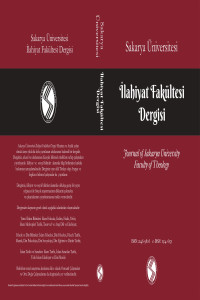Türkiye’de Hint Havzasını Konu Alan Fıkıh Çalışmaları: Bir Hasıla
Fiqh Works in Turkey on the Indian Subcontinent: An Overview
Author(s): Ahmet AydınSubject(s): Islam studies
Published by: Sakarya üniversitesi
Keywords: Fiqh; Hanafi Mazhab; Shafi'i Mazhab; Indian subcontinent; Babur’s Empire;
Summary/Abstract: This study aims to evaluate the history and development of scientific activities in Turkey related to the Hindu Valley by examining the main areas, key issues discussed, scholars who have studied this topic, content and systems in fiqh texts, fiqh education, and contributions of the region to fiqh knowledge. Fiqh is one of the scientific disciplines that has contributed to the transformation of the Indian subcontinent into a civilization. The main goal of this study is to provide some contributions regarding identifying areas where academic research on the Hindu Valley has been concentrated in our country and potential subjects awaiting investigation. It is observed that studies on fiqh during the Republican era generally overlooks this region. However, writing about the history of fiqh, especially for the Hanafi school's development in the Indian subcontinent, requires numerous research efforts. Examining historical developments in fiqh studies that focus on this region through translation and original writings will provide a small contribution towards assessing accumulated knowledge in our country and identifying any gaps. This study aims not only to create a bibliography of fiqh literature that focuses on the Indian world but also to evaluate their contributions based on the research areas they cover. Despite being written in different fields, a few articles that extensively discuss fiqh issues have been included in this research. There is insufficient preliminary research to categorize and analyze the history of fiqh in different periods, such as the Ghaznavids (963-1186), the Delhi Sultanate (1206-1526), Babur’s Empire (1526-1858) Colonial India, and modern era of the Indian subcontinent. Instead of examining fiqh studies chronologically, it was deemed more appropriate to classify them under these dominant periods to better identify the periods that require more focus. During the Ghaznavid period, India had not yet become a center of knowledge and civilization that attracted scholars. In a book that examines the biographies of Indian scholars during the Ghaznavid period, it was determined that Baghdad was an important center of learning in terms of intellectual travels. Many scholars who were born in different cities in the Sindh region came to this area and became renowned figures in hadith and fiqh fields, with some choosing to stay in Baghdad and others opting for Egypt. The Ghaznavid period did not become a subject of fiqh research in our country. Following the conquests by the Ghaznavids, the Delhi Sultanate emerged as a Turkish-Islamic dominion on the Indian subcontinent, exerting lasting social, economic, and political effects. One of the few studies on this period focusing on fiqh is Adem Çiftci's article about al-Fatāwa al-Ghiyāsiyya. It is claimed that al-Fatāwa al-Ghiyāsiyya is considered the first Arabic fatwā book prepared based on the Hanafi school of thought on the Indian subcontinent. The article suggests that this study serves as an example of fatwā works written in the region and has been used as a source by Indian Hanafi jurists.
Journal: Sakarya Üniversitesi İlahiyat Fakültesi Dergisi (SAUIFD)
- Issue Year: 26/2024
- Issue No: 50
- Page Range: 431-463
- Page Count: 33
- Language: Turkish

